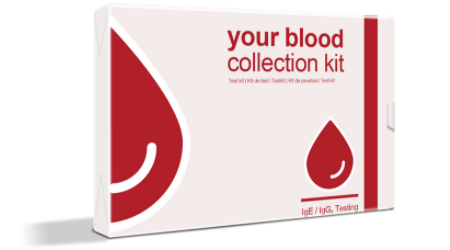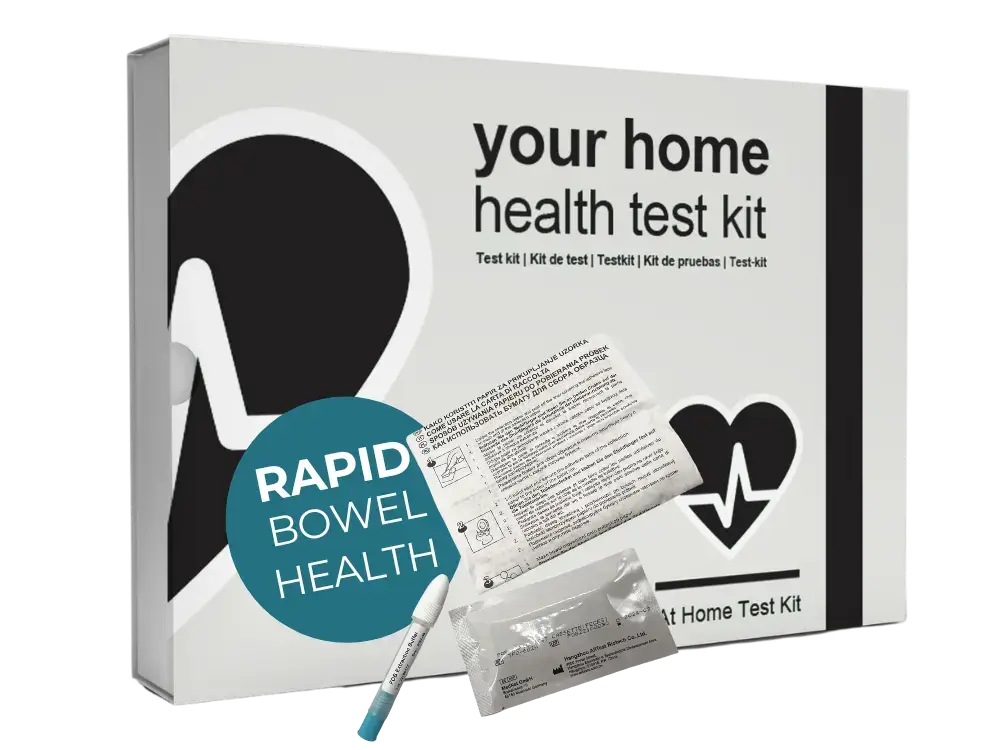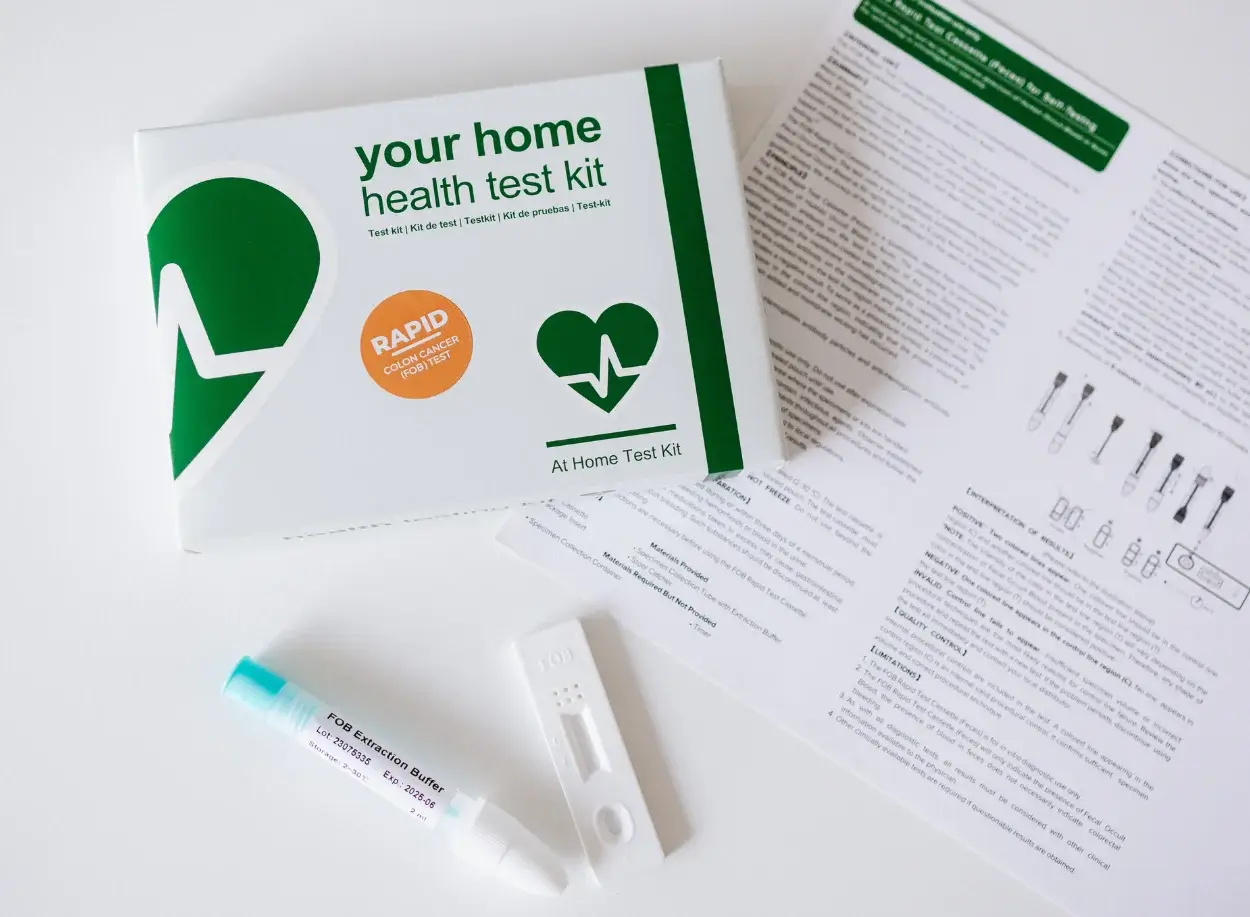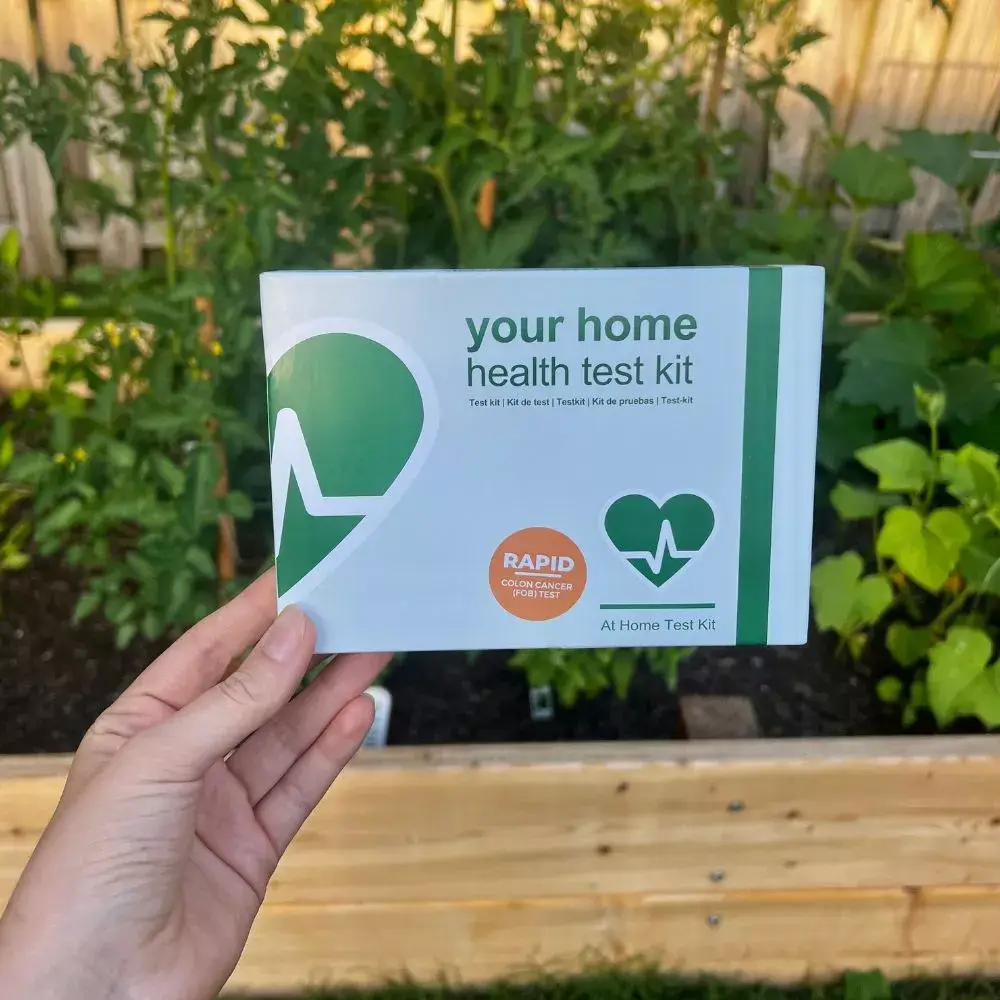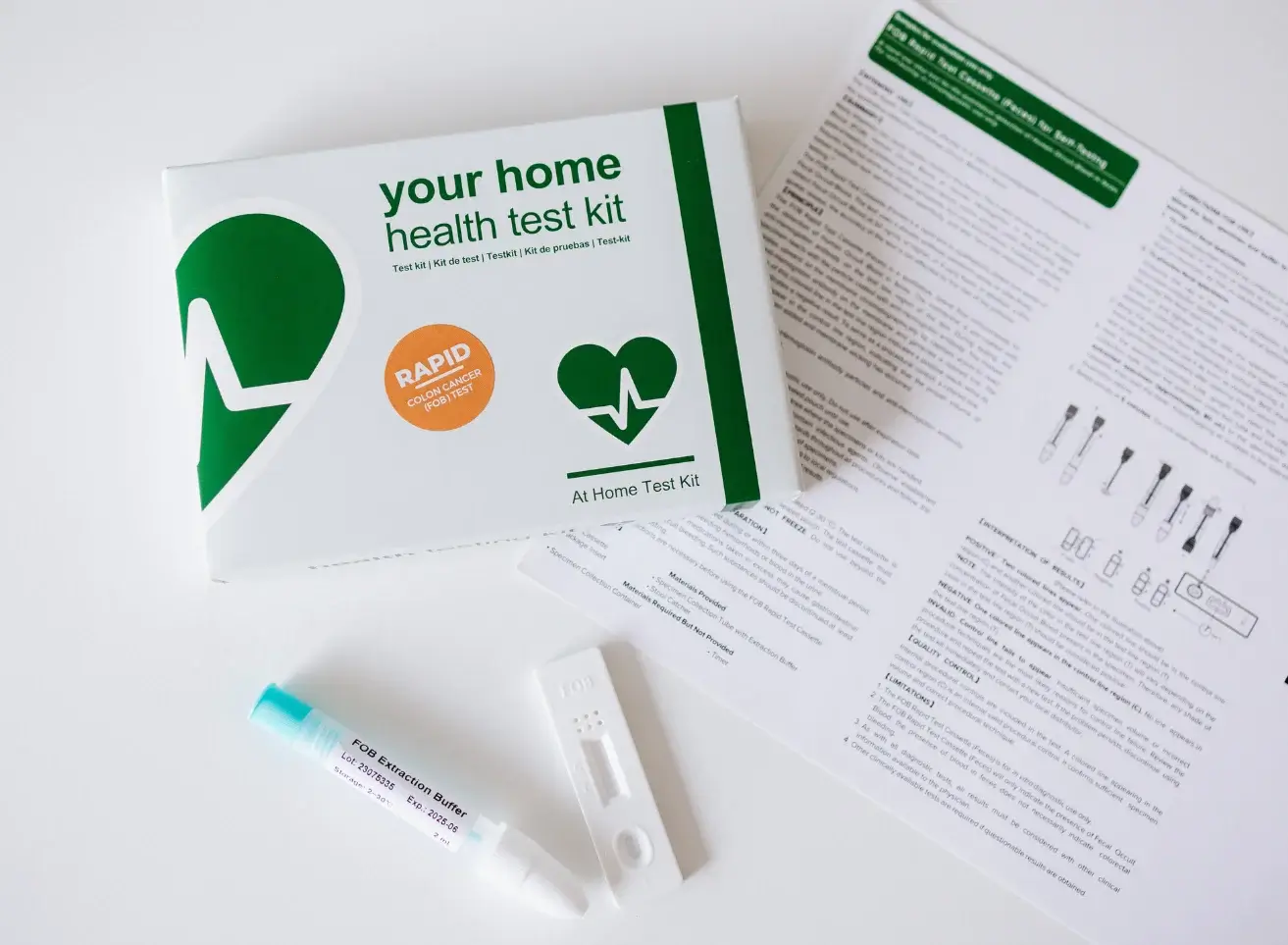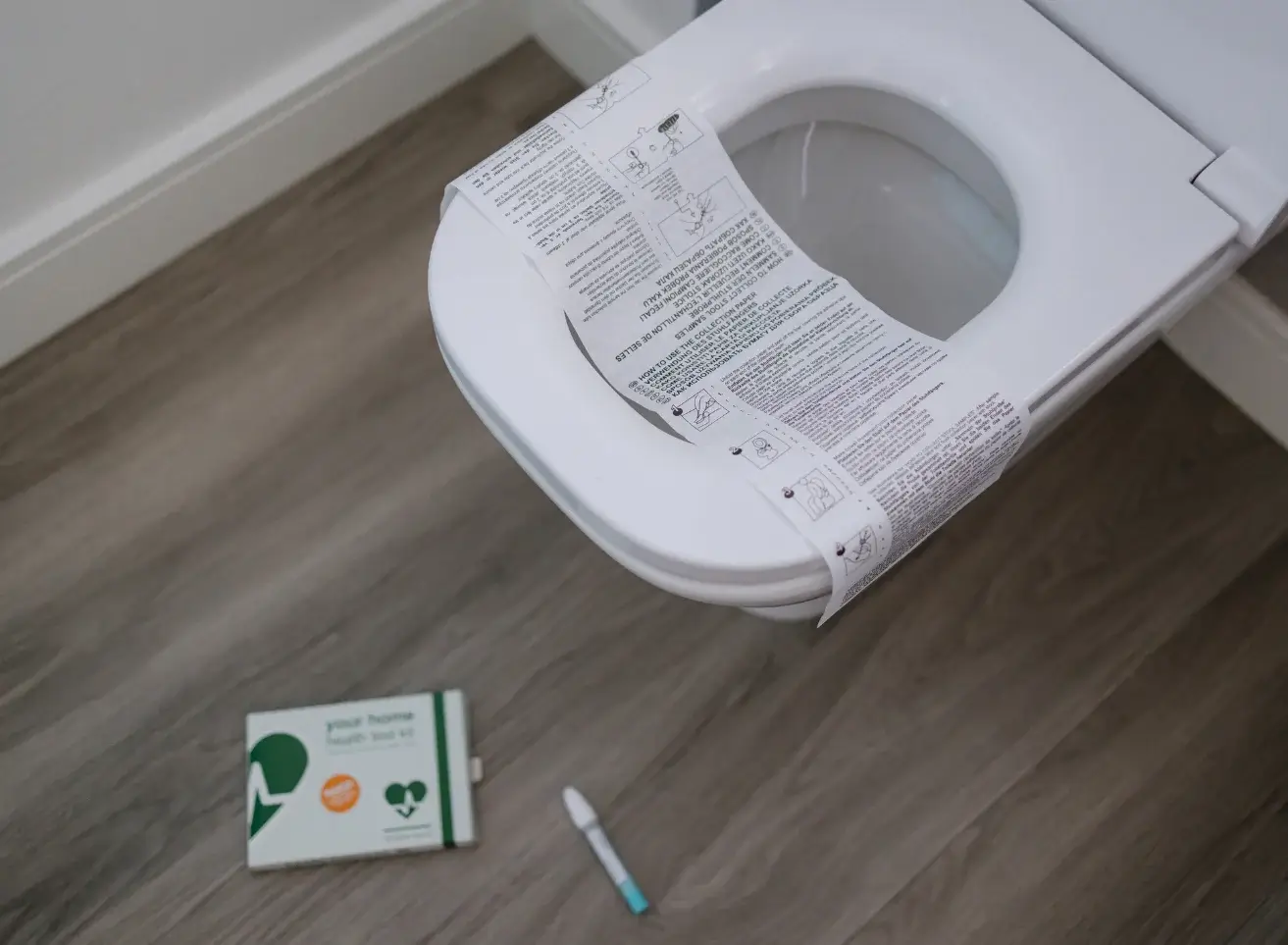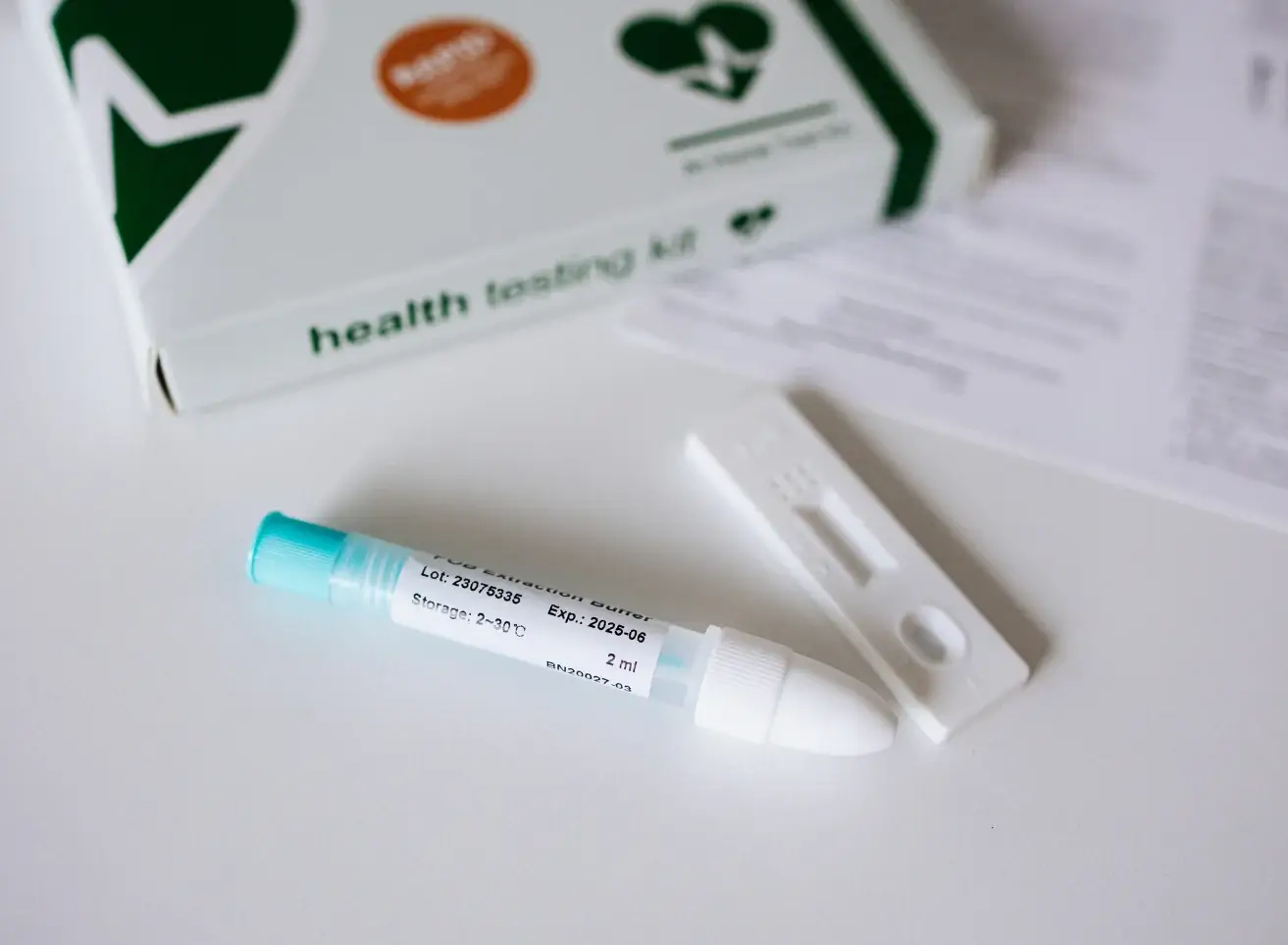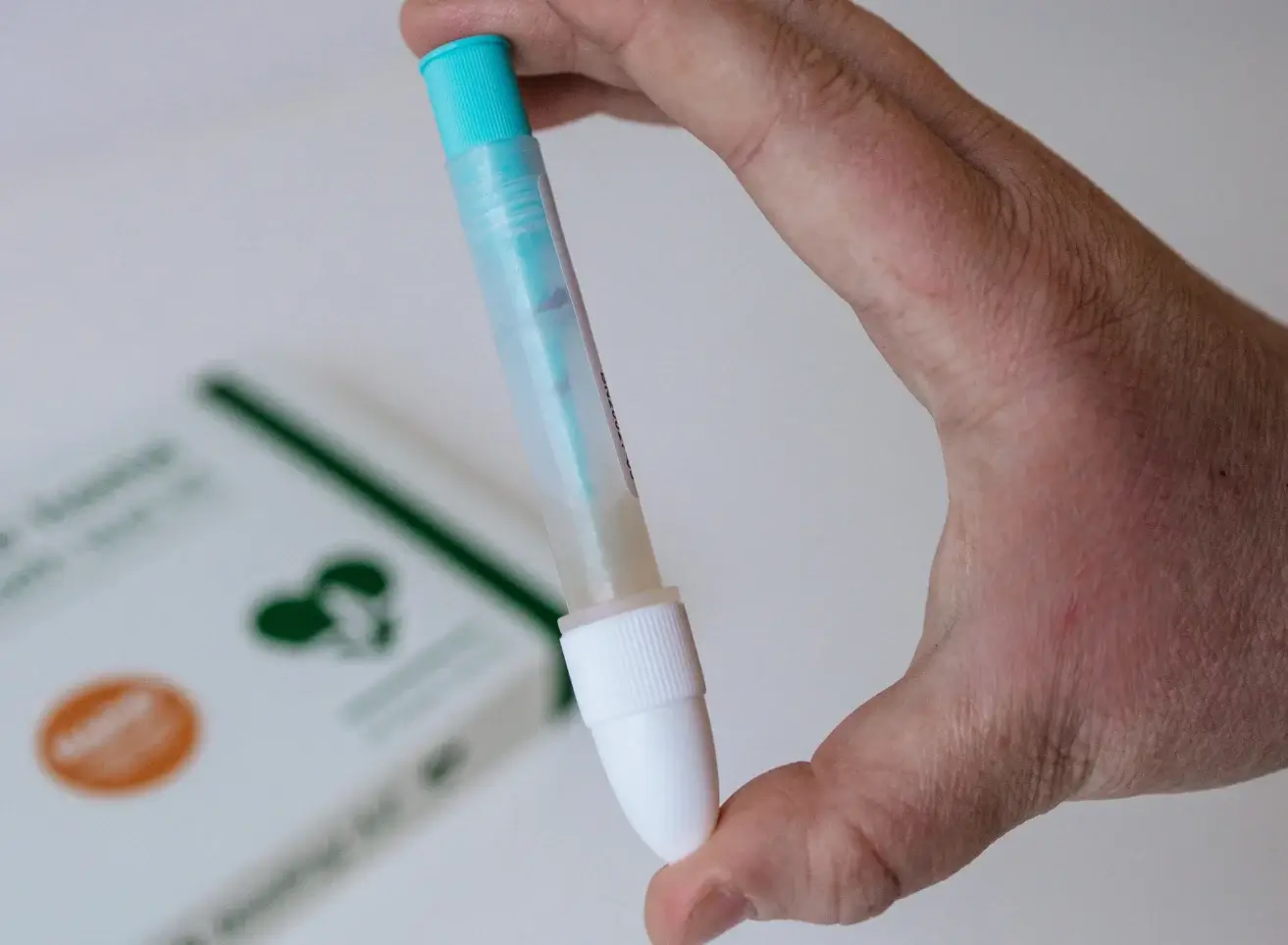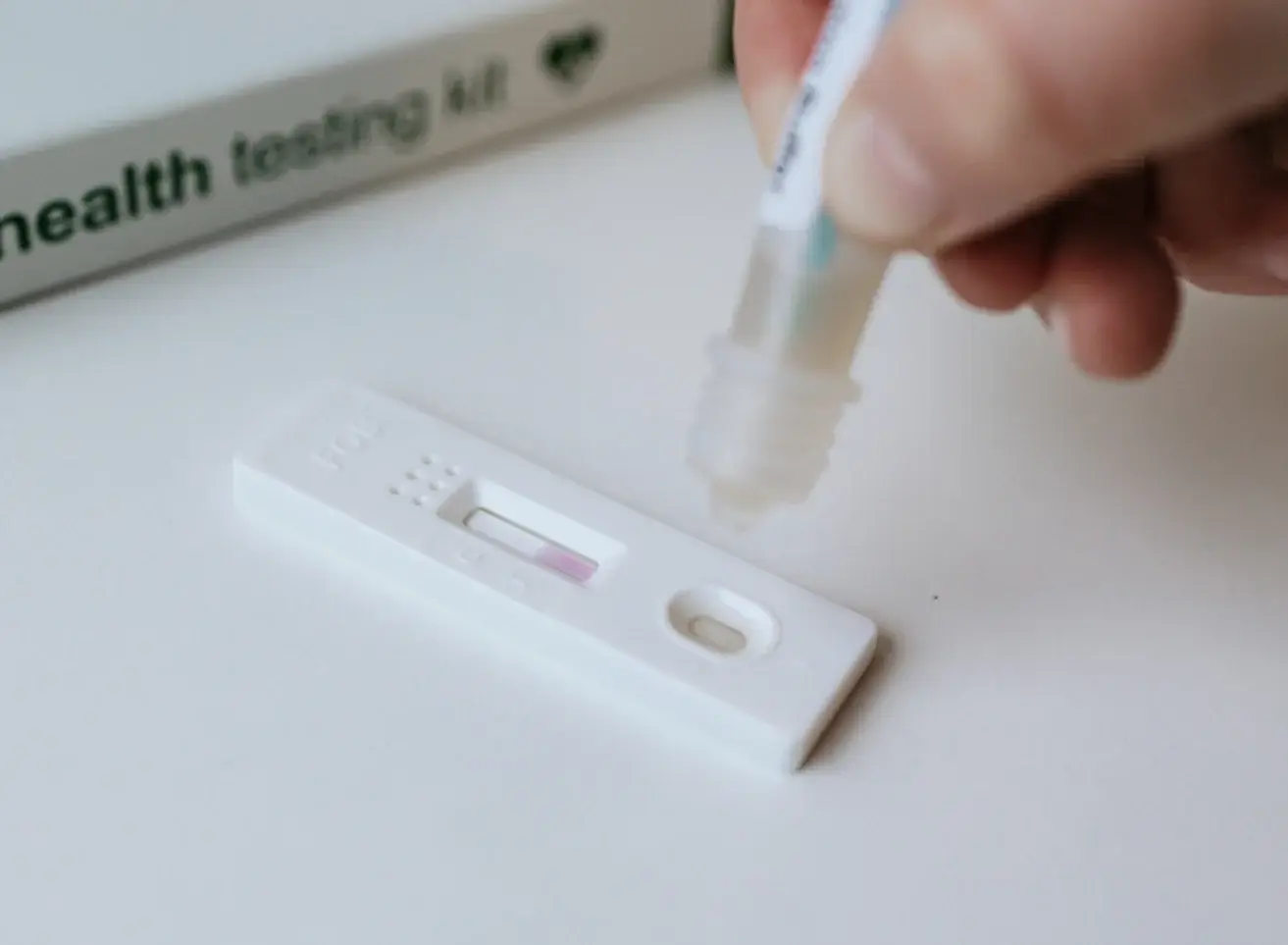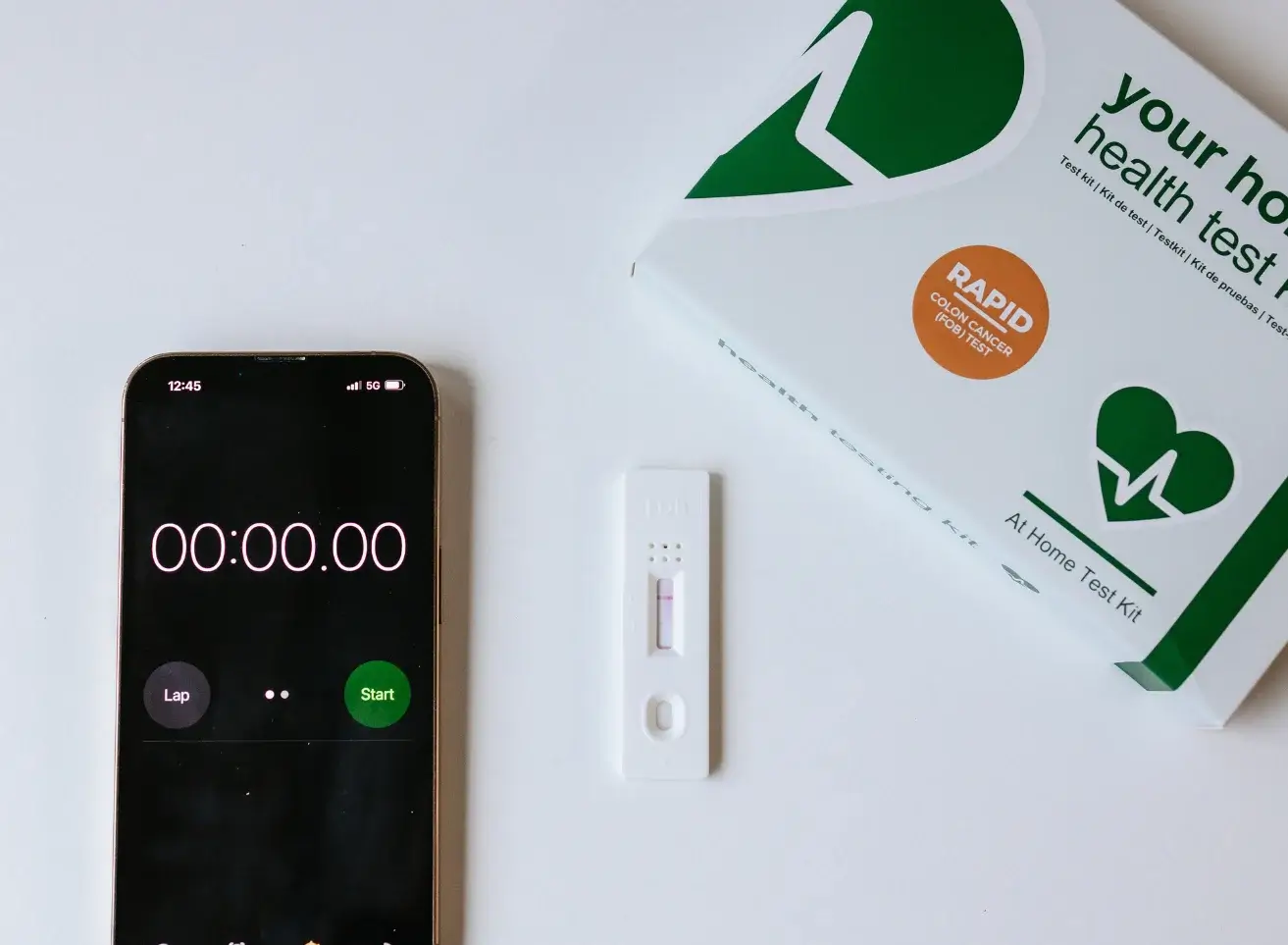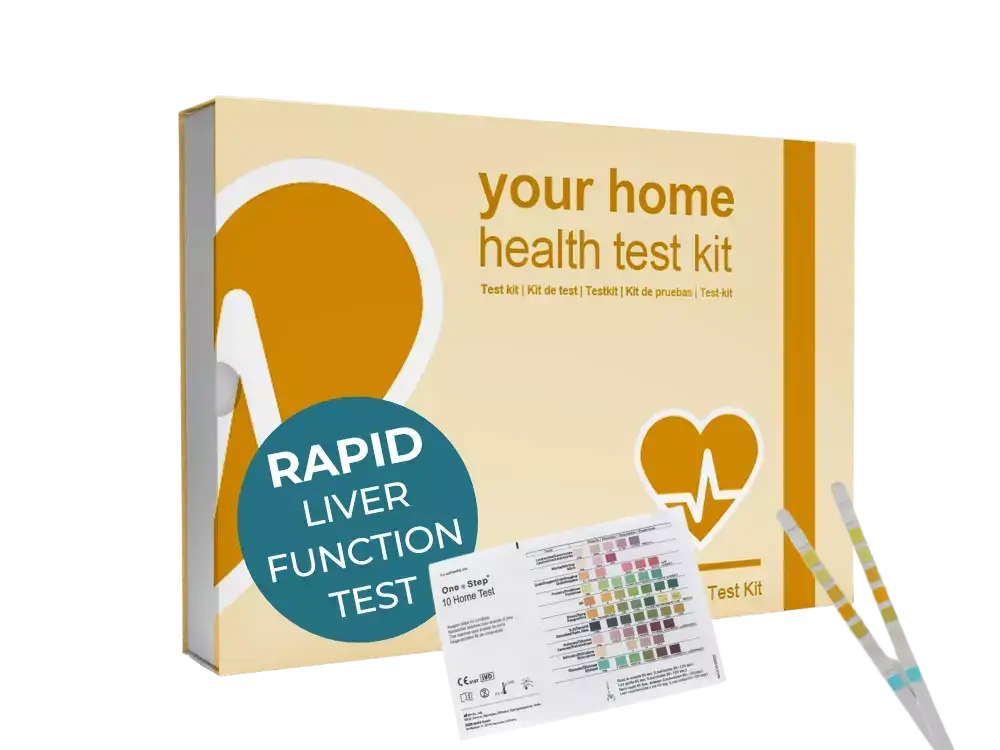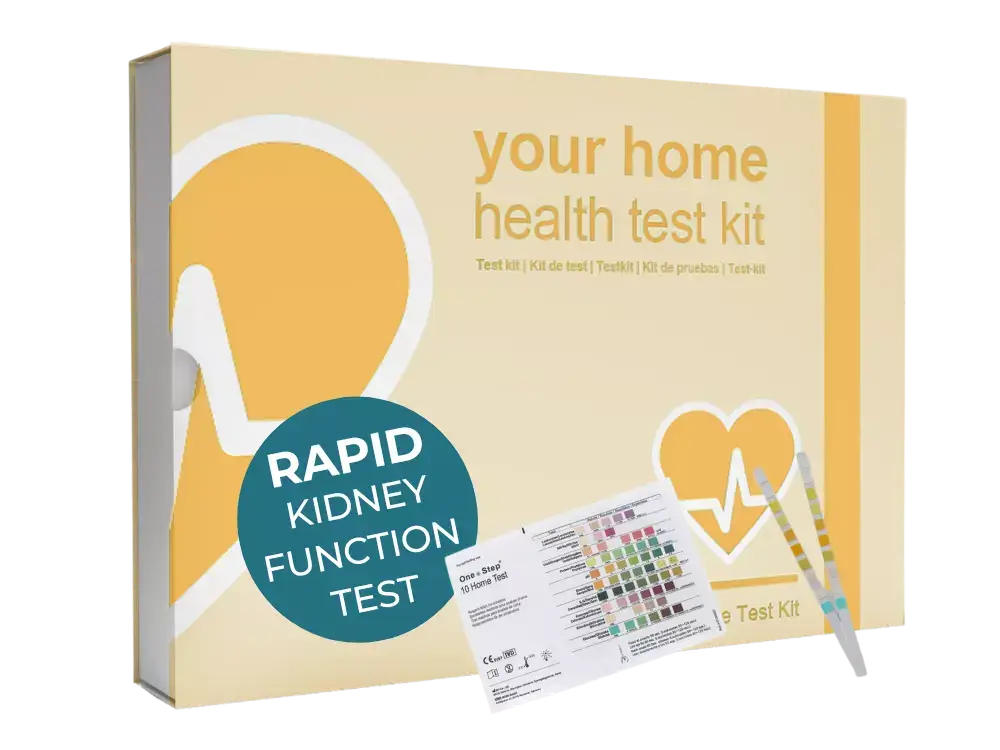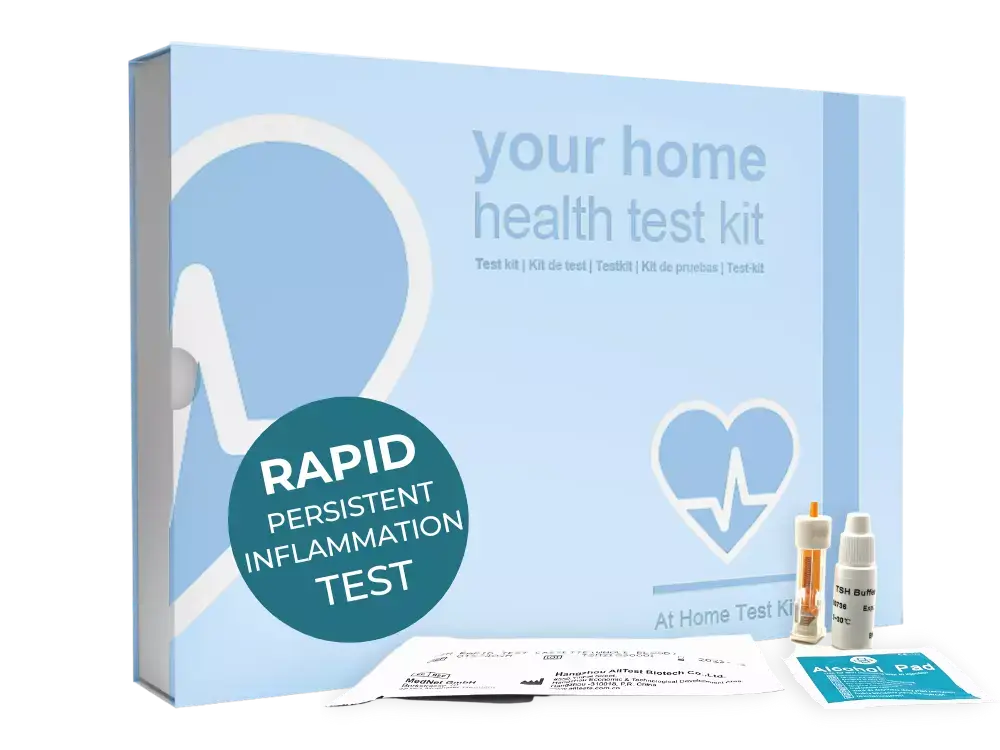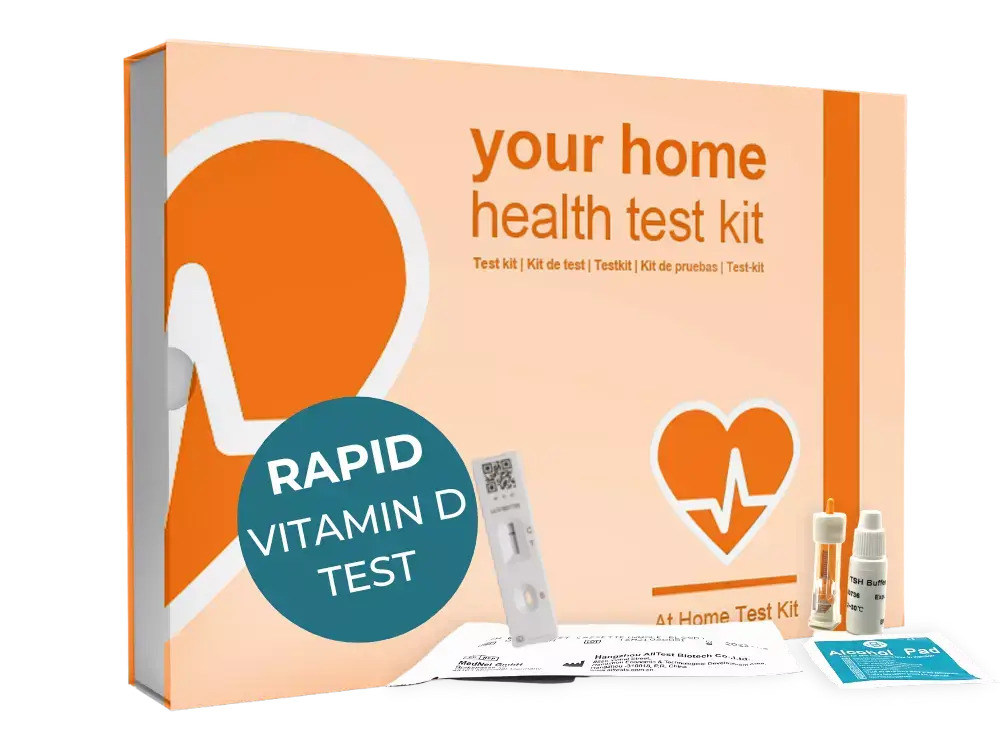The at-home FOB (Faecal Occult Blood) gives you a rapid indication of your gastrointestinal condition aiding the detection of several gastrointestinal diseases that in their early stages may have no visible symptoms including colon cancer, ulcers, polyps, colitis, diverticulitis and fissures.
Currently, the traditional guaiac (a chemical substance from guaiacum trees) based screenings lack sensitivity and specificity, they also involve dietary and medicinal restrictions prior to testing unlike FOB rapid tests.
Occult blood means nonvisible blood in the faeces that could be a sign of a gastrointestinal disease not accompanied by readily discernible symptoms. Early detection of FOB can allow you to seek further medical advice or healthier lifestyle regimes for early-stage diseases that could prevent more severe gastrointestinal damage or control the condition.
This rapid two-step lateral flow immunoassay test uses a specimen collection tube inclusive of extraction buffer and a chromatographic test cassette to detect the level of faecal occult blood above 50 ng/mL for self-testing and is mailed directly to you.
The easy-to-use CE approved testing kit is mailed immediately upon purchase and should reach you within 1-3 business days.
In the box, there will be full instructions provided on how to collect the sample, perform the test and results in just 5 minutes.
